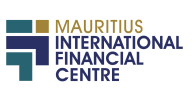Investing in African Equities
Investing in African equities presents a unique opportunity. It’s a chance to tap into one of the world’s fastest-growing regions.
Africa’s economic landscape is changing rapidly. This change is driven by factors such as technological advancements, demographic shifts, and policy reforms.
These factors are creating a wealth of investment opportunities. Particularly in sectors like technology, agriculture, and energy.
However, investing in African equities is not without its challenges. Risks such as political instability and currency fluctuations need careful consideration.
This article aims to guide potential investors through the African equities landscape. It will highlight the opportunities, discuss the risks, and provide practical advice.
Whether you’re an individual investor or a financial advisor, this guide will help you navigate African equities investment opportunities.
Understanding African Equities and Their Potential
African equities refer to shares of companies listed on African stock exchanges. These exchanges play a crucial role in facilitating investment.
Investing in African equities can offer high returns. This is due to the rapid economic growth in many African countries.
However, these investments also come with a higher level of risk. This is due to factors such as political instability and currency fluctuations.
Despite these risks, the potential for wealth creation is significant. Especially for investors willing to take a long-term perspective.
Understanding the dynamics of African economies and markets is key to successful investment.
The Growth of African Economies
African economies are experiencing significant growth. This growth is driven by factors such as technological advancements and policy reforms.
The impact of this growth on investment opportunities is substantial. It’s creating a wealth of opportunities in various sectors.
However, the growth rates vary across different countries. Therefore, understanding the unique dynamics of each country is crucial.
Investors should also consider the impact of global economic trends on African economies.
Key Sectors Driving African Markets
Several sectors are driving growth in African markets. These include technology, agriculture, and energy.
The technology sector, in particular, is experiencing rapid growth. This is due to the emergence of tech startups and fintech companies.
The agriculture sector also offers significant investment opportunities. This is due to Africa’s vast arable land and growing population.
The energy sector, particularly renewable energy, is another key area for investment. This is due to Africa’s abundant natural resources and increasing energy demand.
Understanding these sectors and their potential can help investors make informed decisions.
Accessing African Equities
Investors can access African equities through various channels. One common method is through local stock exchanges.
Another method is through international platforms. These platforms offer access to a wide range of African equities.
However, each method has its pros and cons. Therefore, investors should carefully consider their options.
Local Stock Exchanges vs. International Platforms
Local stock exchanges offer direct access to African equities. They provide investors with a deep understanding of local markets.
However, they may also pose challenges. These include limited liquidity and regulatory hurdles.
On the other hand, international platforms offer broader access. They also provide more liquidity. However, they may lack the local market insights offered by local exchanges.
Investment Funds and ETFs Focused on African Equities
Investment funds and ETFs offer another way to access African equities. These funds provide diversification and professional management.
However, they also come with management fees. These fees can eat into your returns.
Therefore, investors should carefully consider their investment goals and risk tolerance before choosing a method.
Risks and Rewards of African Equities Investment
Investing in African equities comes with both risks and rewards. The potential for high returns is a major draw.
However, investors must also consider the risks. These include political instability, currency fluctuations, and regulatory challenges.
Despite these risks, many investors find the potential rewards worth the risk. They see African equities as a way to diversify their portfolios and tap into fast-growing markets.
Managing Risks in African Equity Investments
Managing risks in African equity investments requires careful planning. Investors should conduct thorough market research and due diligence.
They should also consider diversification. This can help spread risk across different sectors and countries.
Finally, investors should keep an eye on global economic trends. These trends can have a significant impact on African equities.
The Future of African Equities
The future of African equities looks promising. With the growth of African economies, the potential for high returns is increasing.
Emerging Trends and Opportunities
Emerging trends, such as the rise of tech startups and fintech, are creating new investment opportunities. Additionally, the potential for sustainable and impact investing in Africa is growing.
Conclusion: Is African Equities Investment Right for You?
Investing in African equities can be a rewarding venture. However, it requires a thorough understanding of the market and a well-thought-out investment strategy.
It’s crucial to align your investment choices with your personal investment goals and risk tolerance. With the right approach, African equities can be a valuable addition to your investment portfolio.
















